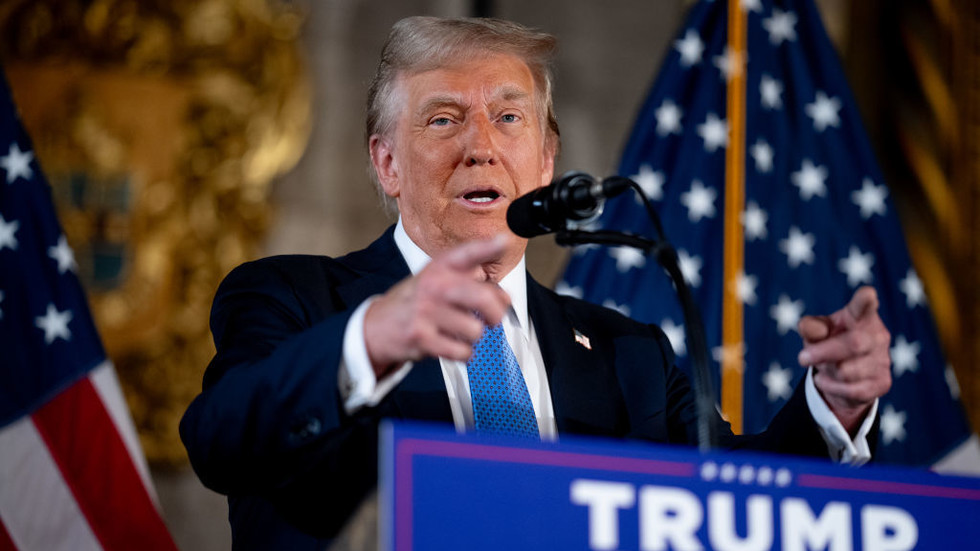In a recent press briefing, US President-elect Donald Trump asserted that Türkiye’s involvement has been pivotal in the ongoing upheaval in Syria, labeling the regime change there as an “unfriendly takeover” by Ankara. His comments come amidst significant developments in Syria where the militant group Hayat Tahrir al-Sham (HTS) has launched a major offensive against the Syrian government forces, resulting in the capture of key cities, including the capital, Damascus. This situation forced President Bashar Assad to escape to Russia for asylum, signaling a dramatic shift in the power dynamics of the region. Trump recognized Türkiye’s strategic role in this transition, describing Turkish President Recep Tayyip Erdogan as a “smart” and “tough” leader who has effectively orchestrated the overthrow of the Syrian government with minimal loss of life.
Turkey’s historical interest in Syria has reportedly been a factor in its aggressive stance in the region, with Trump suggesting that Ankara has long desired to exert influence over Syria. The president-elect emphasized the need to acknowledge Türkiye’s significant military capability, which has not been worn down by prolonged conflict. This perspective outlines Türkiye’s ambitions and operational capacity as central to the ongoing conflicts in Syria and the potential reshaping of the country’s governance. Trump’s comments reflect a perceived alignment between Ankara’s goals and the US’s strategic interests in countering extremist groups in the region, indicating a potential shift towards a more collaborative approach between the two countries.
Looking ahead, Trump expressed uncertainty regarding the future political landscape of Syria, stating that Türkiye is “going to hold the key” to the country’s future governance. He pointed out that the ongoing turmoil has left many uncertainties regarding who will ultimately have control over Syria. The geographic proximity of Türkiye, which shares a lengthy border with Syria, further accentuates its influential position. Historically, Ankara has been a steadfast supporter of opposition groups striving to topple Assad since the onset of the Syrian civil war in 2011. However, despite its designation of HTS as a terrorist organization, Türkiye is believed to maintain significant leverage over this group that has recently escalated hostilities across the region.
Following the collapse of the Syrian government forces, the Syrian National Army (SNA), which receives backing from Türkiye, has also commenced offensive operations in eastern Syria, aiming to capitalize on the chaos ensuing from Assad’s downfall. Turkish President Erdogan has publicly supported the insurgents, calling for their advance towards Damascus in the critical weeks preceding the regime’s decline. This development showcases how pro-Türkiye forces, buoyed by the current instability in Syria, are strategically positioned to exert control over parts of the country that may be left vacated by the Syrian military.
In response to the rapidly evolving situation following Assad’s removal, high-level discussions between Washington and Ankara have commenced, focusing on how to stabilize Syria and mitigate the potential resurgence of extremist groups, particularly the Islamic State. Recent meetings between US Secretary of State Antony Blinken and Turkish Foreign Minister Hakan Fidan have highlighted a joint commitment to address the intricacies of the region’s security landscape, countering terrorist threats while aiming to establish a framework for peace. The parties have identified the necessity for strategic collaboration to ensure that regional terror groups do not exploit the created vacuum in governance and security.
As the geopolitical landscape in Syria shifts, the implications for both Türkiye and the US could be profound. Trump’s acknowledgment of Türkiye’s key role signals a possible recalibration of US foreign policy towards engaging more closely with Ankara, particularly in the context of regional stability and counterterrorism efforts. With Türkiye’s longstanding interest in reshaping Syria’s political framework, the interplay between Turkish ambitions and American support may significantly influence the reestablishment of governance and order in post-Assad Syria. The international community will be closely observing how these dynamics unfold, particularly regarding the prospects for a lasting peace and the management of extremist threats in the region, as both Ankara and Washington outline their strategic goals for the future of Syria.

